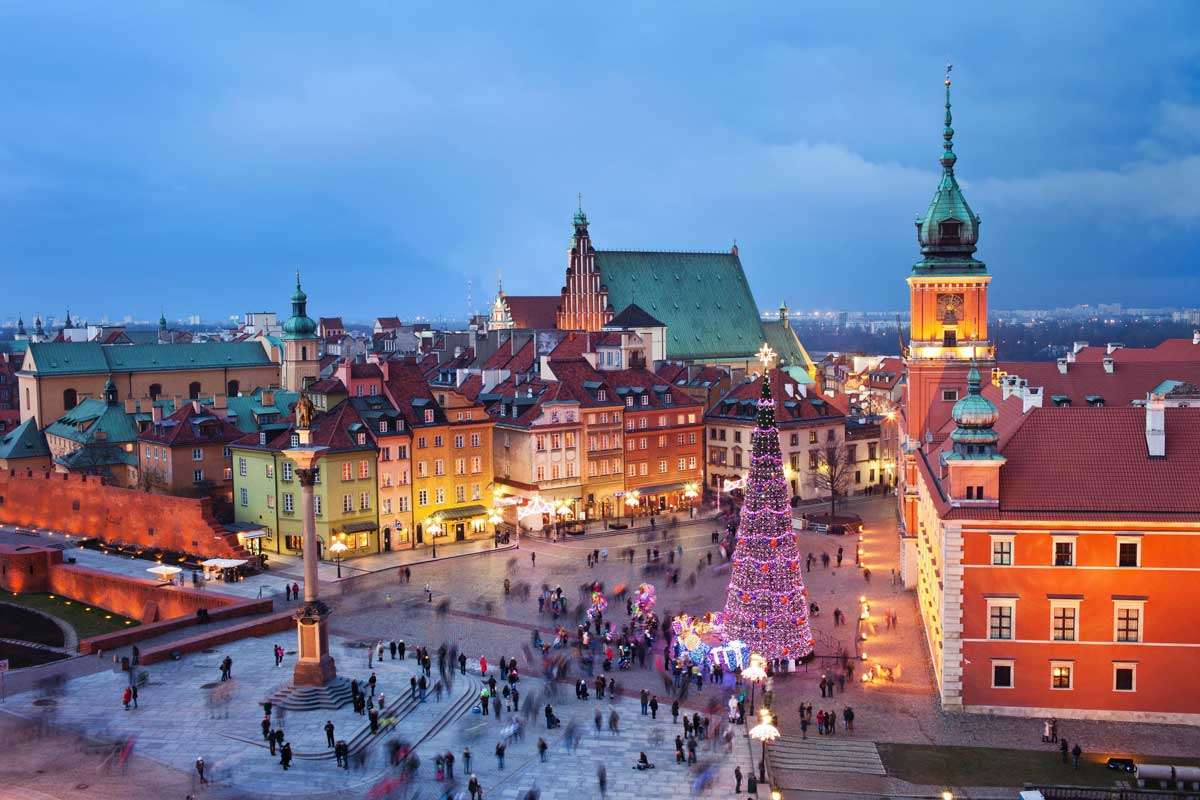Poland is situated in Eastern Europe and bordered by Germany, Ukraine, and Hungary, to name just a few of the many cultures Poland sits in the center of. As a result, many names in Poland have been influenced by languages like Russian, German, and Latin.
Like other cultures and countries in Europe, many Polish last names have been passed down from father to children for generations.
Polish last names are also derived from places, nicknames, and occupations. Names derived from places usually ended in -ski, meaning "of," and for a long time, they were reserved for nobility. In the 13th century, however, it became fashionable to adopt a -ski name, making it one of the most identifiable traits of Polish last names.
Names derived from family patriarchs could have any number of different suffixes, leading to dozens of variations of the same family name; for example, Kowalski and Kowalczyk are both variants of the popular Polish last names that mean blacksmith.
Patronymic Polish Surnames
Patronymic surnames are names that are passed down from father to child. Traditionally these names mean “son of” or “little ”In Polish, these last names are often denoted by -czak, -czyk, -iak, -ik, -ak, -ek, or -yk.
However, in Polish, a wealthy or prominent female relative often passed down her name. These names typically end with a -icz, -wicz, -owicz, -ewicz, or -ycz meaning “son of.”
- Andrysiak - Son of Andrzej, the Polish name for Andrew.
- Filipek - Son of Peter or Philip.
- Kasprzak - Son of Kacper.
- Michalski - Of Michael
- Szymański - Son of Symon.

Image: Old Town, Warsaw, Poland
Occupational Polish Surnames
Many Polish surnames originate from an ancestor's profession. For example, the second most popular last name in the Polish language, Kowalski, is an occupational name meaning blacksmith.
- Chlebek - This Polish last name means a baker.
- Dziedzic - A landowner.
- Kaczmarek - This last name is derived from the Polish word karczma, which means innkeeper.
- Kaminski - This last name means stonecutter.
- Koziol - This Polish last name means goatherd. An alternative version of this last name is Kozlowski.
- Krawczyk - This last name means tailor. An alternative version is Krawiec.
- Krol - Krol is the Polish word for King, so this last name refers to someone associated with the king.
- Ryba - This Czech and Slovak word means fisherman.
- Slusarski - The occupational last name for a locksmith.
- Wozniak - This name comes from the Polish word wozny, meaning clerk.
Regional Polish Surnames
Poland, like other places, is divided into regions, towns, cities, etc., and is surrounded by many other countries and cultures. As people moved about and in and out of Poland, toponymic surnames derived from words from the surrounding Slavic, Czech, and German-speaking countries influenced Polish last names.
- Czajkowski - The Polish word czajka means bird, and this last name means someone from the town of Czajka.
- Jankowski - A person from the town of Jankowo.
- Jaskolski - Someone from the town of Jaskolski.
- Krakowski - Someone from the city of Krakow.
- Lewandowski - A person who hailed from the Polish estate Lewandow, which means lavender.
- Malinowski - A person who lived by the raspberry patch.
- Nowak - The new person, new in town.
- Ostrowski - From the river island.
- Piotrowski - A person from the town of Piotrow.
- Wiśniewski - Someone from the town Wisniewo.
Common Polish Last Names
While patronymic, regional, and occupational surnames are all regular occurrences, many Polish last names stem from various other sources.
- Bartosz - The Polish name for Bartholomew, one of Christ’s original disciples.
- Bosko - This name comes from the Slavic word for barefoot.
- Brzezinski - A name with Hebrew origins and means birch tree.
- Dabrowski - This name means oak grove.
- Gorski - A mountain or hilly area.
- Laska - Grace or mercy.
- Majewski - A person who was born in May.
- Marek - This last name refers to St. Mark.
- Nosek - One with a small nose.
- Zieliński- This last name stems from green, so it may have referred to a person who wore green clothing.
What Is a Typical Polish Last Name?
Typical Polish last names often have unique characteristics and specific meanings, including the following.
- Abramczyk - Derived from the name "Abram," which is the Polish form of "Abraham," meaning "father of many" in Hebrew.
- Andrzejewski - A patronymic surname meaning "son of Andrzej," with Andrzej being the Polish form of the name "Andrew," meaning "manly" or "brave."
- Babinski - This surname likely originates from the word "babin" which could be a derivative of "baba" meaning an old woman or grandma, or it could refer to a place associated with a woman named Baba.
- Kowalski/Kowalska - One of the most common Polish surnames, Kowalski means "blacksmith" (male form) and Kowalska is the female form of the surname.

